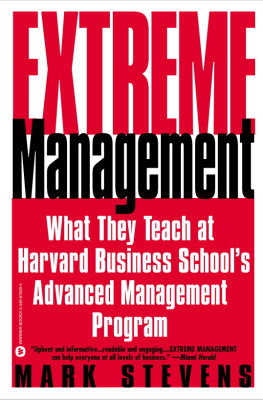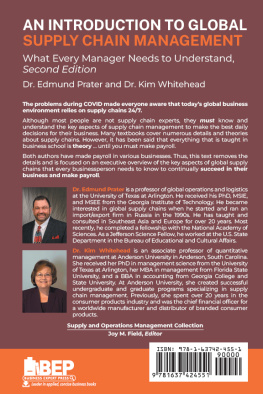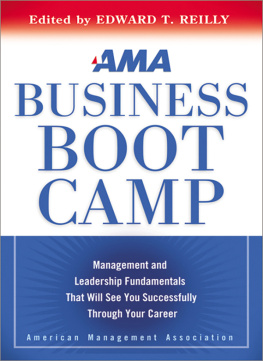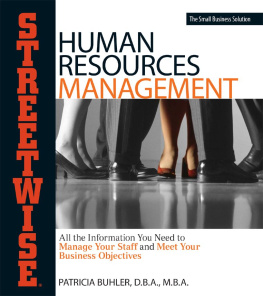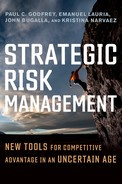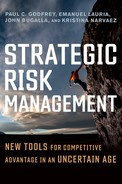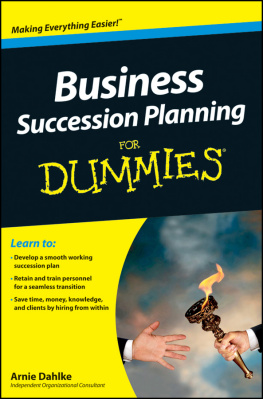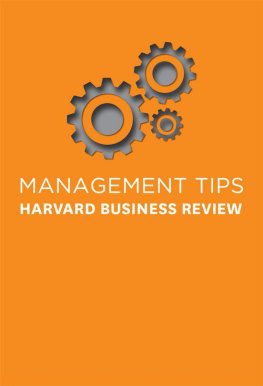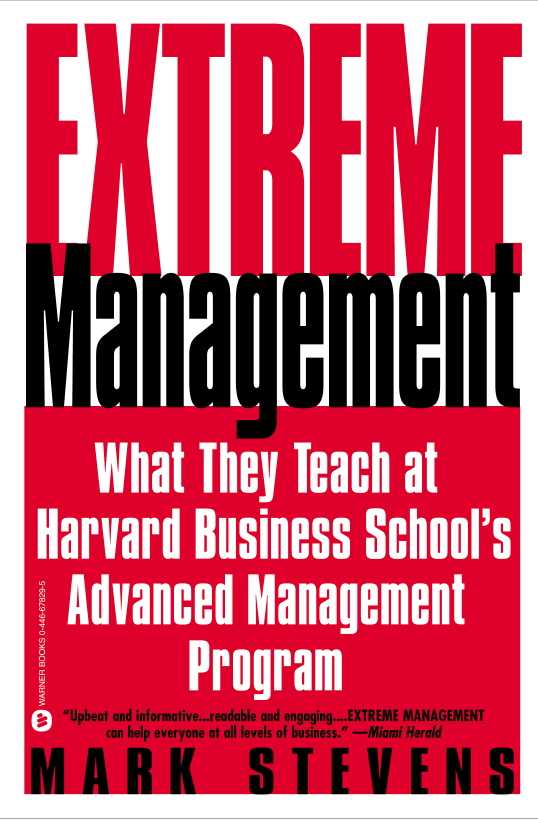To Carol Ann
An extreme friend
I like to race sailboats out of Marblehead Harbor. Every time I go out on the water, I am struck by the fact that we all race the same boats with the same number of crew in the same weather conditions. But one crew always manages to outrace the other crew and win. Why? Because their captain understands that the ability to lead and inspire a team makes the pivotal difference in sailing... and the same is true in managing.
Harvard Advanced Management Program Professor Emeritus Robert H. Hayes
As the CEO of a marketing company, I spend my days assisting senior managers struggling with issues of leadership. I constantly strategize: how to outmaneuver competitors, how to gain market share, how to develop powerful new offerings that command attention in the marketplace, how to forge effective teams to accomplish these and other critical objectives.
Through the years, I have witnessed some of the best business minds in actionchief executives, corporate raiders, financiers, and entrepreneursand I have worked with them in their quest to achieve greater growth, profitability, and shareholder value through innovation, market domination, and operating excellence. Time and again, the ability of these individuals to focus brute intellectual power on real-world business issues and to transform this intelligence into highly effective strategies and tactics has impressed me. They are often able to achieve success within a set of circumstances that appear untenable and unforgiving.
But other times, they come up short, unable to achieve their goals in spite of enormous investments in time, capital, and people. Due to a lack of knowledge, experience, or insight they simply fail to win in instances when a smarter strategy or a deeper understanding would have proven victorious.
This led me to wonder: Is there a place where the corporate elite can gain exposure to creative management concepts and principles that would lead them to a higher level of excellence and success? And could these lessons be utilized by everyone in business, regardless of their experience, rank, or title?
I envisioned a Top Gun School, where a handpicked cadre of senior managers would be immersed in an intensive learning experience that would propel themand others who would share in their learningto achieve consistent superiority in the complex and competitive theaters of corporate war. And I imagined gaining access to this learningfrom those who taught it and those who absorbed itand revealing it to anyone seeking to gain an advantage in their personal and professional lives.
Ultimately, I found more than I could have ever hoped. Deep within the Harvard Business Schooloperating behind its broader and better-known MBA programis a unique corporate training regimen officially known as the Advanced Management Program (AMP). Launched at the outset of World War II, it was designed to help U.S. industry play a key role in defeating the Nazi blitzkrieg. To date, AMP has quietly shaped the careers of leading executives and their companies for more than a half century. Although well known and highly regarded by the corporate elitewho know it, among other things, as the launching pad for Robert S. McNamaras ascent from AMP instructor to the head of Ford Motor Company to secretary of defenseit has remained a well-kept secret among the general corporate community.
This book will reveal the secrets of AMPmaking the knowledge, the methodologies, and the way of thinking the program imparts to a relative few widely available to all who are interested in continuous learning and self-improvement.
As I set out on this course, I was determined to identify the lessons and insights that the faculty and students found the most compelling and valuable in the real world. I wanted the reader to take a virtual seat in the AMP classroom and share the experience of attending the program. In the process I have condensed what is ordinarily a nine-week, $44,000 regimen into a crash course that can be absorbed in the space of an airplane flight and then kept as a desktop guide for meeting and mastering the challenges of corporate competition. Although the book certainly cannot duplicate the experience of meeting and working with peers in a classroom setting, or interacting with the Harvard faculty, it will open a world of knowledge to those who may never be fortunate enough to be recruited to attend the Advanced Management Program by their employers.
My gratitude goes out to the AMP faculty and students who shared their insights and experiences with me, and to the Harvard Business School. Whenever possible I cite the person interviewed but in certain cases I honor the request for anonymity. However, the opinions and conclusions expressed in the book reflect the thinking of the author and his sourcesnot Harvard Business School.
The Advanced Management Program can trace its roots back to 1939. In that momentous year, Robert Gueiroard, the son of a wealthy French publishing family, was deep into his MBA training at Harvard Business School. He assumed his days spent absorbing the intricacies of double entry bookkeeping, push-pull marketing, and the principles of corporate leadership on Harvards bucolic campus would be just one glorious chapter in his life before he would transition into the privileged world of his familys business. But his days at the university were numbered.
Robert Gueiroards life was redirected by the forces of history on September 1, 1939, when the Nazi threat turned to aggression and 1.5 million German troops, six panzer and four motorized divisions, and 1,600 state-of-the-art aircraft swarmed into Poland. Two days later Britain and France declared war on Germany. As Hitler set his crosshairs on France, Gueiroard was ordered by his government to return home and take up ranks with a French tank corps headed for the front. In an abrupt, disorienting change of lifestyle, Gueiroard moved from the intellectual preserve of Boston, Massachusetts, to the nightmarish violence of the battlefield. Gueiroards elite unit was equipped with the best French military technology but was swiftly decimated by the Germans.
Although Gueiroard survived the Battle of France, the devastation of his fellow soldiers, his unit, and his country left a deep impression on the young officer and businessman-in-training. After the French were defeated, Gueiroard sought to resurrect his private life. He returned to Harvard but this time armed with a cautionary message for his American classmates. Writing an article in the schools alumni magazine titled Blitzkrieg Tactics: A Warning to the United States, Gueiroard sounded an alarm that Americas historic isolationist position could not hold up in a rapidly shrinking world. He issued a challenge that would have industrial as well as military implications: Could the United States match the German might, tank for tank, fighter plane for fighter plane, bomb for bomb, tactic for tactic, strategy for strategy?
Embedded in Gueiroards warning was a disturbing message that the nature of warfare was being reinvented by the Nazis in a way that made all previous combat tactics and strategies outdated and highly vulnerable in the face of the German onslaught. For the United States to prevail, it would have to match German might on the battlefield.
The best way and the only way to stop tank divisions is to use a larger tank division, Gueiroard wrote, and the only effective active defense against a plane is another plane. If the Germans had no such superiority in the air, our troops would not have been submitted to such continuous destruction....
... I wonder whether the people of this country are ready to accept the sacrifices which are required, if this country is to be saved?

